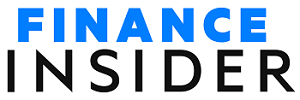In this article, we discuss the evolution of financial reporting with digital tools and how these tools improve accuracy, reduce errors, and ensure timely compliance.
The Evolution of Financial Reporting: Embracing Digital Tools for Greater Accuracy
Introduction
Financial reporting has come a long way from the days of manual ledgers and cumbersome paperwork. The advent of digital tools has significantly transformed this field, making processes more accurate and compliant with regulatory standards. These tools leverage technologies like artificial intelligence (AI), machine learning (ML), and cloud computing to automate traditional accounting tasks.
Digital tools have revolutionised financial reporting by enhancing accuracy, reducing errors, and enabling compliance. Organisations need to use this technology to stay competitive in today’s business.
By integrating advanced solutions into their financial systems, businesses can generate more accurate reports, meet compliance deadlines more efficiently, and ultimately make better-informed decisions.
The Evolution of Financial Reporting
Historically, financial reporting relied heavily on traditional methods and manual processes. Accountants painstakingly recorded transactions in ledgers, which were then compiled into reports. This manual approach was not only time-consuming but also prone to human error. Mistakes in data entry or calculations could lead to significant inaccuracies, impacting decision-making and regulatory compliance.
The Shift to Digital Solutions
Transitioning from these traditional accounting systems to digital solutions marked a pivotal change. With the advent of digital tools, organisations began to automate routine tasks, such as data entry and reconciliation, reducing the likelihood of errors. Digital solutions also enabled real-time data processing, allowing for timely financial insights and more accurate forecasting.
The Rise of Cloud-Based Accounting
One notable transformation is the adoption of cloud-based accounting platforms. These platforms allow for seamless collaboration across departments and counties, ensuring consistent and up-to-date financial information.
The Role of AI and Machine Learning
Incorporating AI and machine learning into financial reporting processes has provided advanced analytics capabilities, identifying trends and anomalies that would be challenging to detect manually.
Digital solutions have revolutionised financial reporting by streamlining operations, enhancing accuracy, and enabling real-time data analysis. This evolution now reflects a shift from labour-intensive manual processes to efficient, technology-driven methods that support better business decisions.
Key Digital Tools Transforming Financial Reporting
1. Automation of Traditional Accounting Tasks
Digital tools such as AI and ML (Machine Learning) are revolutionising traditional accounting tasks by automating processes that were once manual and time-consuming. Here’s how:
- Data Entry and Reconciliation: Historically, accountants spent countless hours entering data into spreadsheets and reconciling accounts. With robotic process automation (RPA), these tasks are now automated, significantly reducing the time required and minimising the risk of human error.
- Invoice Processing: AI-driven systems can scan and process invoices, extract relevant information, and update financial records without manual intervention. This not only speeds up the process but also ensures higher accuracy levels.
- Financial Close Processes: Automated solutions streamline month-end and year-end closing activities. Tasks such as consolidations, adjustments, and report generation are completed faster and with fewer discrepancies.
- Expense Management: Machine learning algorithms can automatically categorise expenses, detect anomalies, and flag suspicious transactions for review.
Using these technologies improves efficiency in the reporting process by freeing accountants to focus on more strategic activities rather than repetitive tasks. This automation massively improves the accuracy of financial reports, ensuring that businesses have reliable data for decision-making.
2. Enhancing Accuracy Through Real-Time Data Processing
Accurate financial reporting is critical for businesses, impacting everything from regulatory compliance to investor confidence. As mentioned AI, ML and RPA play a pivotal role in this precision.
AI and ML Algorithms
AI and ML algorithms process vast amounts of data at incredible speeds, identifying patterns and anomalies that human eyes might miss. This level of scrutiny ensures that financial records are both comprehensive and precise.
Real-Time Data Processing
Real-time data processing allows companies to have an up-to-the-minute view of their financial status. Traditional methods often rely on periodic updates, leading to outdated information and potential errors. With real-time insights, businesses can make informed decisions quickly and remain agile in their decision making.
RPA for Repetitive Tasks
RPA takes over repetitive tasks such as data entry and reconciliation, which are prone to human error. Automated systems ensure consistency and accuracy by following predefined rules without deviation.
Incorporating these technologies into financial reporting workflows enhances the reliability of the data, offering a robust foundation for strategic planning and compliance activities.
3. Reducing Errors with Automated Compliance Systems
Human error can be a significant issue in traditional financial reporting, often arising from manual data entry, complex calculations, and inconsistent application of rules. These errors can lead to inaccuracies that may result in regulatory non-compliance and financial misstatements.
Automation in financial reporting leverages technology such as Al, ML and RPA. Collectively they:
- Continuously scan financial data for anomalies, ensuring consistency and accuracy.
- Executes repetitive tasks like data entry and reconciliation with precision, effectively reducing human error.
Automated compliance systems play a crucial role by:
- Standardising processes: Ensuring uniform application of accounting rules and regulations.
- Real-time monitoring: Detecting potential compliance issues before they escalate.
By integrating these digital tools, organisations can significantly reduce the likelihood of errors in their financial reports, thereby enhancing overall accuracy and reliability.
4. Ensuring Timely Compliance with Cloud-Based Solutions
Meeting compliance deadlines can be a challenging task for financial departments. Traditional methods often involve manual data entry and time-consuming checks, increasing the risk of delays. Cloud-based solutions offer a huge advantage in this regard.
1. Real-time Data Access
Cloud platforms enable organisations to access financial data from anywhere at any time. This ensures that all relevant information is up-to-date and readily available for compliance reporting.
2. Automation and Integration
Many cloud-based tools incorporate technology, automating routine tasks and integrating seamlessly with existing systems.
3. Centralised Data Repositories
Storing data in a centralised cloud repository ensures that everyone has access to the same information, minimising discrepancies and enhancing accuracy in financial reports. In most cases, this would be a cloud-based server.
4. Scalability and Flexibility
Cloud solutions can easily scale to meet the growing needs of an organisation, making it easier to adapt to changes in regulatory requirements without significant investments in new infrastructure.
By leveraging these cloud-based tools, companies can streamline their compliance processes and avoid the pitfalls associated with traditional reporting methods.
Future Trends in Financial Reporting Technologies
Future advancements in financial reporting technologies are set to revolutionise the industry further. Expect an increased integration with emerging technologies like blockchain, which promises to enhance transparency and security in financial transactions. With blockchain’s decentralised ledger system, financial data can be recorded immutably, reducing fraud and ensuring a higher level of accuracy.
Artificial Intelligence (AI) and Machine Learning (ML) will continue to advance further, offering predictive analytics for better financial forecasting. This technology can sift through vast amounts of data to identify patterns and trends that would be impossible for humans to detect, providing invaluable insights for decision-makers.
Increased automation is another trend on the horizon. Robotic Process Automation (RPA) will handle even more complex accounting tasks, freeing up human resources for strategic activities. Automated compliance systems will evolve to adapt swiftly to changing regulations, ensuring continuous adherence without manual intervention.
Despite these exciting developments, challenges must be addressed:
- Cybersecurity risks: As financial data becomes increasingly digital, the threat of cyber-attacks looms larger. Organisations need robust security protocols to protect sensitive information.
- Data confidentiality: Maintaining the privacy of financial data is critical. Advanced encryption methods and access controls will be essential to safeguard this information from unauthorised access.
Embracing these future trends will require both technological investment and a commitment to maintaining stringent security measures.
Conclusion: Embracing Technology for Improved Financial Reporting Outcomes
Digital tools are game-changers for financial reporting, enhancing accuracy, reducing errors, and ensuring timely compliance. Their integration into financial processes offers significant benefits:
- Enhanced accuracy through real-time data processing.
- Error reduction via automated compliance systems.
- Timely compliance facilitated by cloud-based solutions.
Organisations investing in modern financial reporting solutions position themselves competitively in today’s fast-paced business landscape. Embracing technology in financial reporting not only streamlines operations but also enables better resource allocation and informed decision-making.
Who we are
Thanks for reading our article, we hope you found it informative. If you would like to see how we can help integrate financial solutions into your business with systems like Sage Intacct, don’t hesitate to contact our team of specialists who would only be too happy to help.
We are a multi-award-winning company based in the UK offering Sage accounting software solutions. Itas Solutions provides services and support for all Sage products including the cloud-based Intacct.
Being a multiple-award-winning Sage Partner is proof of our commitment to quality in the fields of financial transformation consulting and Sage technology.
Our team, which consists of technical professionals and transformation consultants, helps businesses use Sage software to maximise their financial processes.
Please email [email protected] or call +441824 780 000 to find out more about this and how we can assist you

